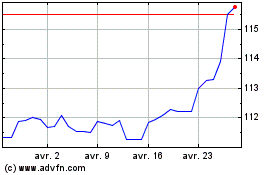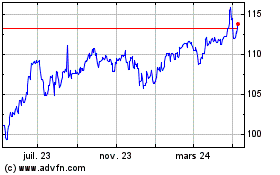Commodity Currencies Gain On Upbeat China Trade Data
07 Novembre 2024 - 5:36AM
RTTF2
The Commodity-linked currencies such as Australia, the New
Zealand and the Canadian dollars strengthened against their major
currencies in the Asian session on Thursday, after data showed that
China's exports expanded the most in more than two years in
October, while imports declined at a sharper-than-expected pace due
to weaker domestic demand.
The official data showed that the China's exports grew 12.7
percent on a yearly basis, following an increase of 2.4 percent in
September, customs data revealed. Shipments were forecast to climb
only 5.0 percent.
On the other hand, imports dropped 2.3 percent annually after a
0.3 percent rise in the previous month. Economists had forecast
imports to drop 1.5 percent.
As a result, the trade surplus surged to $95.7 billion from
$81.7 billion in the previous month and remained well above
economists' forecast of $73.5 billion.
In recent years, exports acted as the major growth driver, while
weak domestic activity and the property market downturn damped
consumption.
Donald Trump's second term as the U.S. President is likely to
pose headwinds to Chinese trade. In his pre-election campaign,
Trump vowed to impose tariffs of between 60 and 100 percent on
Chinese imports.
It is believed a Trump administration will scale back government
regulations and be less hostile to mergers and acquisitions but
policies such as tax cuts and tariffs could trigger price
pressures.
Trader's focus shifted to interest-rate decisions from the Bank
of England and the Federal Reserve due later in the day.
In economic news, data from the Australian Bureau of Statistics
showed that the total number of building approvals issued in
September was up a seasonally adjusted 4.4 percent on month, coming
in at 14,842. That was in line with expectations following the 3.9
percent drop in August.
On a yearly basis, overall approvals climbed 6.8 percent.
In the Asian trading today, the Australian dollar rose to nearly
a 3-1/2-month high of 102.27 against the yen and a 2-week high of
1.6214 against the euro, from yesterday's closing quotes of 101.56
and 1.6234, respectively. If the aussie extends its uptrend, it is
likely to find resistance around 101.56 against the yen and 1.60
against the euro.
Against the Canadian and the New Zealand dollars, the aussie
advanced to a 3-day high of 0.9212 and a 2-day high of 1.1076 from
Wednesday's closing quotes of 0.9154 and 1.1057, respectively. The
aussie may test resistance around 0.93 against the loonie and 1.12
against the kiwi.
The aussie edged up to 0.6637 against the U.S. dollar, from
yesterday's closing value of 0.6568. The next possible upside
target for the aussie is seen around the 0.68 region.
The NZ dollar rose to a 3-1/2-month high of 92.43 against the
yen and a 2-week high of 1.7934 against the euro, from yesterday's
closing quotes of 91.82 and 1.8061, respectively. The kiwi may test
resistance around 96.00 against the yen and 1.77 against the
euro.
Against the U.S. dollar, the kiwi edged up to 0.6004 from
Wednesday's closing value of 0.5938. If the kiwi extends its
uptrend, it is likely to find resistance around the 0.61
region.
The Canadian dollar rose to more than a 3-month high of 111.19
against the yen, from yesterday's closing value of 110.93. If the
loonie extends its uptrend, it is likely to find resistance around
the 112.00 area.
Against the U.S. dollar and the euro, the loonie advanced to
1.3871 and 1.4916 from Wednesday's closing quotes of 1.3938 and
1.4953, respectively. On the upside, 1.36 against the greenback and
1.48 against the euro are seen as the next resistance levels for
the loonie.
Looking ahead, Eurostat releases euro area retail sales figures
for September at 5:00 am ET. Economists expect sales to grow 0.4
percent on month after a 0.2 percent rise in August.
At 7:00 am ET, the Bank of England will announce its interest
rate decision for November. At the end of two-day policy meeting,
the Monetary Policy Committee of the BoE is expected to lower the
bank rate to 4.75 percent from 5.00 percent.
In the New York session, U.S. weekly jobless claims data and
wholesale inventories for September are set to be released.
At 2:00 pm ET, The U.S. Federal Open Market Committee (FOMC)
announces its interest rate decision, but uncertainty over the
future policy easing escalated after Donald Trump won the U.S.
presidential election. The bank is expected to lower its benchmark
interest rate by 25 basis points to 4.75 percent at its November
meeting.
At 2:30 pm ET, the U.S. Fed chair Jerome Powell is scheduled to
speak at a press conference following the announcement of U.S. Fed
monetary policy.
CAD vs Yen (FX:CADJPY)
Graphique Historique de la Devise
De Déc 2024 à Jan 2025

CAD vs Yen (FX:CADJPY)
Graphique Historique de la Devise
De Jan 2024 à Jan 2025
